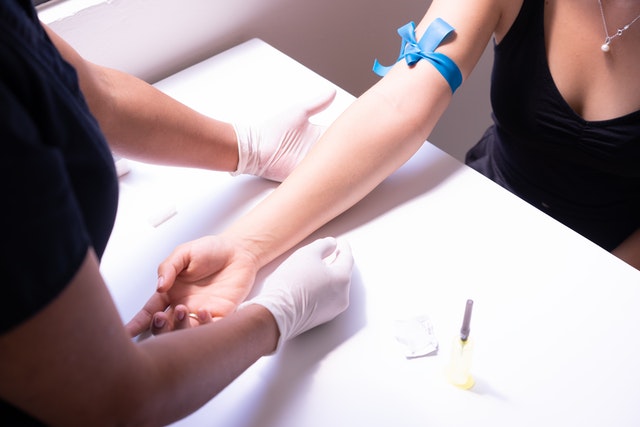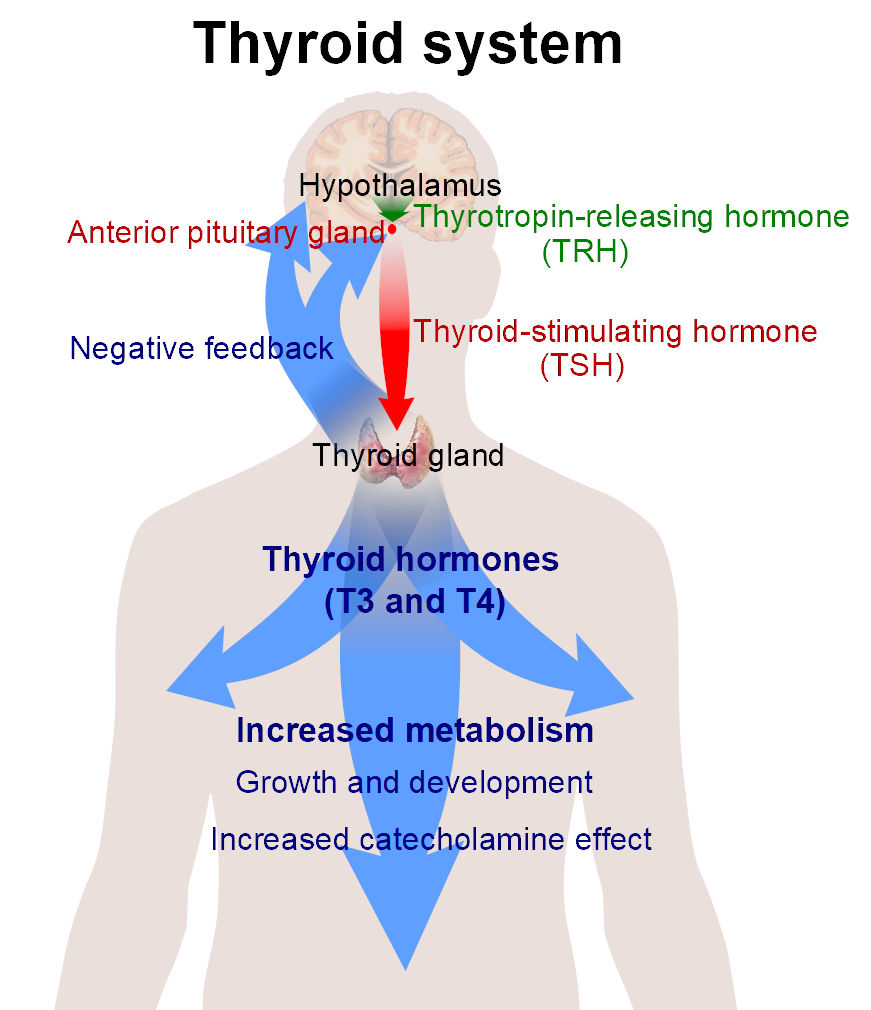
Women experience many changes in their bodies throughout their lifetime, and most of the time, they just shrug it off and continue with their busy schedules. However, if a woman experiences changes in her weight, changes in her bowel habits, changes in her mood, intolerance to heat or cold, and fatigue, it’s time to have a medical check-up because the thyroid gland may be to blame.
A tiny gland at the base of the neck just in front of the larynx, called the thyroid gland, regulates body temperature and keeps all the body’s organs working together. The thyroid gland keeps our hearts beating and our brains thinking. Statistics show that about one in eight women will develop a thyroid problem.
Hypothyroidism vs. Hyperthyroidism–Not Enough or Too Much?
You may be diagnosed with hypothyroidism when the thyroid does not secrete enough hormones. You will have symptoms like unexplained weight gain, intolerance to cold, memory problems, slow heart rate, and constipation. Hypothyroidism rates are higher in menopausal women than in young women, and thyroid disfunction can happen to either sex.
On the other hand, you may be diagnosed with hyperthyroidism when the thyroid secretes too much hormone. You’ll have the opposite symptoms of hypothyroidism, and you will have unexplained weight loss, intolerance to heat, nervousness, hand tremors, and frequent bowel movements.
Many people visit their doctors seeking help to overcome extreme fatigue. Fatigue can be a symptom of an underactive or overactive thyroid gland, and women may need to request a thyroid hormone blood test to get the answers.

Diagnosis of Hypothyroidism or Hyperthyroidism
There are various reasons why women experience fatigue, but a blood test is the best place to begin. The blood test will measure how much thyroid hormone you have in your blood, and the blood tests will measure the Thyroid Stimulating Hormone (TSH)–or how well your thyroid is functioning.
In the past, physicians have considered the normal range for a woman’s TSH blood test to be 0.5 to 5.0 ml U/L. However, endocrinologists have recently felt a TSH between 0.3 and 3.0 normal, which allows for less variation in women.
However, diagnosis goes beyond just checking TSH. A complete thyroid panel includes free T3 free T4 and Hashimoto’s Antibodies. Hashimoto’s antibodies are blood markers that signify that your body is attacking your own thyroid gland. Furthermore, not all women respond well to T4 only treatment as they cannot convert T4 to T3. In this case, in order to balance the thyroid hormones, it will require additional T3. A mix of T4/T3 hormones is available in the form of porcine glandular extract called Armour or NP thyroid – the proportion of T4/T3 in these products are similar to what humans need, so many women see best improvement by adding more T3.

Addressing Hashimoto’s Disease early on is crucial, as it is an autoimmune condition and sometimes something as simple as eating gluten free can help reverse the progression of the antibodies assault on your thyroid.
Physicians will each have an opinion about their patient’s thyroid function, but the physician should evaluate all of the woman’s symptoms before determining a final diagnosis. A complete personal history of the patient’s symptoms and their patient’s family history can be helpful in the doctor’s definitive diagnosis.
A doctor’s physical exam and all the other evaluations are essential. During this exam, the physician may feel your neck where the thyroid gland is located to see if gland enlargement or thyroid nodules are present. An abnormality could indicate an early stage of cancer, which is also a cause of thyroid dysfunction. For this your doctor may also request an ultrasound examination.
Importance of Diagnosis
Thyroid disease or thyroid function disorders can be a symptom of:
● Autoimmune disorders
● Diabetes
● Cancer
or lead to:
● Menstrual cycle problems
● Problems getting pregnant
● Problems during pregnancy
Treatments
Once your thyroid is destroyed by the inflammation there will be no cure, but physicians can treat hypothyroidism with thyroid hormone pills to help balance thyroid levels. TSH (thyroid stimulating hormone) is the hormone in the brain that is released to help control the thyroid. Thyroid medication must be taken on an empty stomach to gain its full effects.
Hyperthyroidism can be more complicated for physicians to treat. Thyroid treatment considers how progressive and severe the disorder is and the age and health of the patient.
Radioactive therapies have been prescribed by physicians when the thyroid creates too much hormone. Radioactive treatment can result in low hormone production for the patient and the need for thyroid supplementation treatment afterward.
Physicians often treat thyroid cancer with surgery followed by iodine-131 treatments and thyroid hormone replacement.
Most thyroid benign nodules don’t require any treatment; however, physicians recommend routine follow-up visits in case of any physical changes.
It’s important to note that a diet low in B vitamins, FE (iron deficiency) and iodine may result in low thyroid levels — when no antibodies are found a replacement of vitamin deficiencies can correct the thyroid within a few months.

Addressing gut health can help the immune process involved in causing the thyroid disorder. Ignoring your immune system health and focusing on the thyroid only, will not address the cause, and will allow the inflammation to proceed and worsen — ultimately there will be no functioning thyroid tissue left, and the patient will need to be on thyroid replacement for the rest of their life.
Like most medical issues women experience, good communication with one’s medical provider is a must. Do not hesitate to seek an additional opinion if you don’t get the necessary answers you need, feel like your physician or medical provider is not listening to you, or if you don’t feel better after beginning medication. Your health, comfort, and your life are too important to ignore.
Thyroid Specialist in Thousand Oaks
If you’re in the Thousand Oaks area, we would love for you to see us if you want to check on your thyroid. At HERA Healthcare, we are able to review your symptoms and run the needed tests to determine whether you have a thyroid issue. At HERA Healthcare we get satisfied patients and good outcomes because we address the patient comprehensively and look for a cause and also try to reverse it if possible, to conserve remaining thyroid function.


